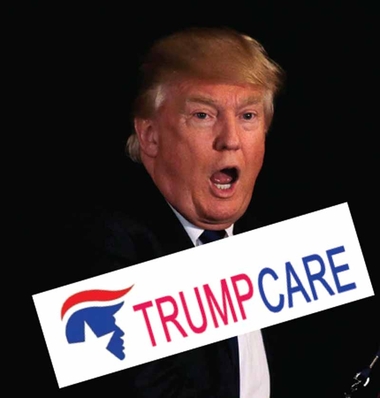What will happen to LGBTQ people under “Trumpcare”?

Editor’s Note: This article was written before the defeat of Obamacare repeal in the House of Representatives. However, given the determination of President Trump and the Congress to pass a healthcare law, the issues raised in the article are still important, and current.
by Victoria Backle
Staff Writer
Trump’s plans for reforming healthcare is a fear of many Americans. Although his plan will help wealthier Americans, it is expected to increase premiums for the elderly, the sick and the lower-income citizens of the country.
But how are Trump’s changes going to affect the LGBTQ community, the one that is no longer on the White House website?
LGBTQ people already struggle in the healthcare system. The community has a higher rate of substance abuse, mental illness and chronic conditions than their heterosexual peers.
They have a higher chance of being denied care based on their sexual identities or gender expressions and their chances of being uninsured is eight percent higher than non-LGBTQ Americans.
Obama’s Affordable Care Act (ACA) was a tremendous victory for LGBTQ health. Under the act, equal treatment and rights for same-sex couples were implemented and it included special protections for gay, lesbian, bisexual and transgender citizens.
Within one year, the number of LGBTQ people that were uninsured fell by four and a half percent.
For some, the new administration brings an onslaught of concerns for LGBTQ citizens. The fear that Obamacare’s protections for them will disappear under Trump’s reign is a growing uncertainty.
David Stacy, Government Affairs Director of the Human Rights Campaign, stated exclusively to The Gayly, "The Affordable Care Act brought relief to millions - whether it's those living with pre-existing conditions like HIV/AIDS or trans people who are now able to access necessary care. Countless LGBTQ people are now living in fear that we will go back to the days where one illness can mean not only financial but physical ruin."
Another concerned citizen is Patricia Smith, who asked The Gayly to conceal her real name. Smith is a nurse of twenty-five years at the Veteran’s Administration Hospital in Fayetteville, Arkansas.
Smith’s concerns over veterans’ rights have risen with the incoming changes to healthcare, but having two LGBTQ children, their fate in the system worries her as well.
“Working in a veteran’s hospital, I’ve seen a lot of defects with the insurance system over the years. People getting turned away, getting second-rate care or just simply not having access to decent physicians,” Smith said. “And now I worry that things will get even uglier for our gay patients.”
An example of this ugliness can be seen in Tennessee’s SB1, which if it passes, will allow mental health practitioners to deny LGBTQ patients on religious grounds.
Another example is Tom Price, Secretary of the Department of Health and Human Services. Price has a long-standing opposition to LGBTQ rights and will have power over many aspects of the healthcare system in the U.S.
Price was recently quoted saying that protecting transgender rights and the freedom to choose the bathroom that fits their gender expression is “absurd.” As a member of Congress, he has voted against numerous non-discrimination bills protecting the LGBTQ community.
This is a very real concern for LGBTQ Americans.
Though we still remain uncertain of the administration’s agenda for healthcare, it’s important to remain aware of any changes, especially those made silently.
The risks that are associated with the incoming administration means LGBTQ people may be left uninsured, turned away from mental or physical treatment or denied necessary care based on their sexual orientation or gender expression.
Copyright 2017 The Gayly – March 31, 2017 @ 11:30 a.m.





